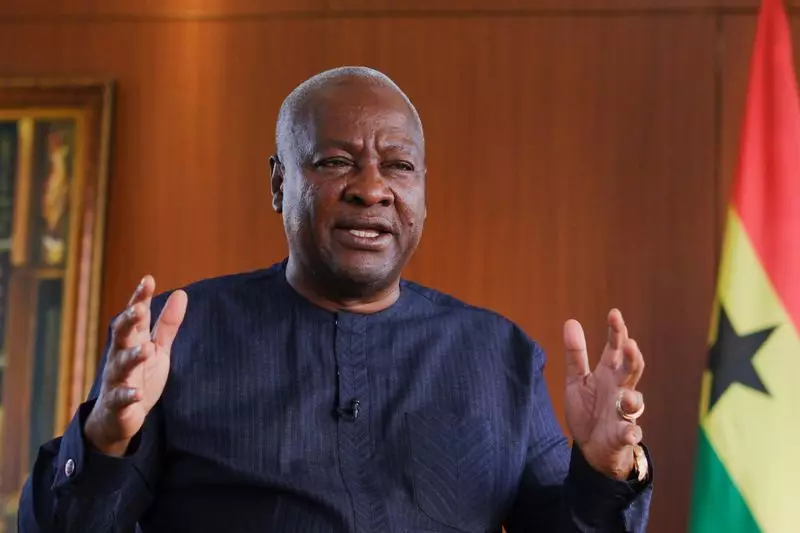Ghana’s political landscape is poised for significant transformation following the recent election of President-elect John Dramani Mahama. Having previously served as president, his return to power represents a critical juncture as Ghana grapples with economic challenges, particularly rising inflation and currency depreciation. Mahama’s pledge to revise the $3 billion rescue package from the International Monetary Fund (IMF) signifies a nuanced approach to governance, one that prioritizes both fiscal responsibility and socio-economic welfare.
Mahama’s stance on maintaining the IMF agreement showcases his understanding of the delicate balance required in managing foreign aid while ensuring national interests. He emphasized that his intent is not to abandon the program but to enhance it by addressing systemic issues like wasteful state spending and inefficiencies, particularly in the energy sector. “When I talk about renegotiation, I don’t mean we’re jettisoning the program,” he noted, cementing his commitment to the existing framework while suggesting that reforms could yield better outcomes for Ghanaians.
This strategic approach is essential, especially given Ghana’s current economic climate. After enduring what Mahama termed the “worst economic crisis in a generation,” his administration faces the monumental task of restoring public confidence and stabilizing the economy.
The need to tackle inflation and the depreciating cedi is pressing. Mahama’s administration will need to devise policies that not only aim to control these economic indicators but also provide immediate relief to citizens grappling with the cost-of-living crisis. Highlighting the urgency of the situation, Mahama stated, “The economic situation is dire… and I’m going to put my soul, physique, and everything into it,” reinforcing his commitment to prioritizing the livelihoods of everyday Ghanaians.
Moreover, Mahama’s acknowledgment of the “multiplicity of taxes” as detrimental to business suggests a willingness to reconsider fiscal strategies. This could lead to a more favorable business environment, thereby driving growth in various sectors that are vital to the Ghanaian economy. His focus on such issues reflects an understanding that economic recovery requires not just financial reforms but also an environment conducive to business and investment.
One of the more pressing challenges Mahama identified is the state of Ghana’s energy sector, specifically the Electricity Company of Ghana, which he referred to as the “sick man” of the energy value chain. His promise to address energy-related issues underscores the impact of power outages on productivity and quality of life. A comprehensive reform agenda is critical, focusing on restructuring operations and enhancing service delivery, which can eliminate recurrent power shortages.
In a country where energy is pivotal to economic productivity, Mahama’s emphasis on sustainable energy solutions promises to make a considerable difference. By placing energy reform at the forefront, he signals a clear intention to reduce industry constraints that have historically stymied growth in various sectors of the economy.
Mahama has suggested that the IMF will be involved in an early mission to conduct a regular review of the program. This collaborative stance is commendable as it insists on multi-faceted dialogue with international partners while simultaneously advocating for internal reforms. Approaching the impending debt restructuring process with an emphasis on sustainable solutions will be a test of Mahama’s capacity to integrate both local and global economic strategies effectively.
Furthermore, his call for budgetary tightening extends to the presidential office, demonstrating accountability at the highest levels. “If the president is asking us to tighten our belt, he must also tighten his,” Mahama asserted, laying the groundwork for a government willing to share in the burdens during tough economic times.
As President-elect Mahama embarks on his new term, the expectations of Ghanaians ride heavily on his ability to transform rhetoric into actionable policy. His approach illustrates an awareness of the intricacies involved in managing an economy intertwined with global systems, all while remaining focused on the realities faced by ordinary citizens. With a commitment to fiscal prudence, energy reforms, and innovative negotiations with the IMF, Mahama’s leadership could herald a new era of growth and stability for Ghana.

